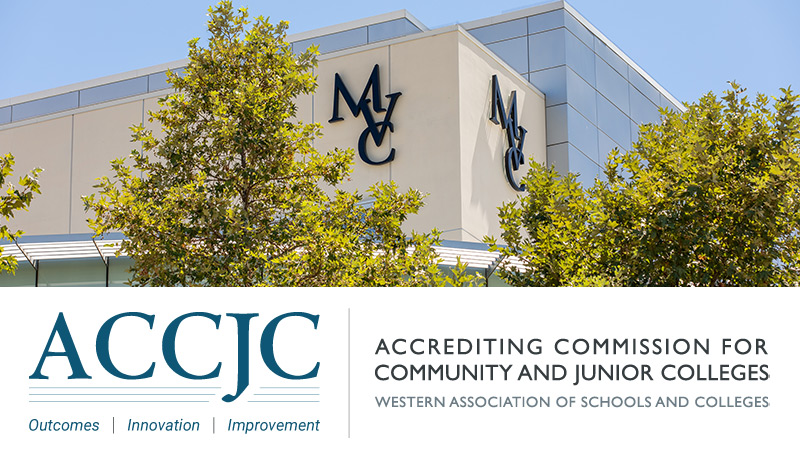College Presents its Story of Improving Distance Education Delivery

In March, Moreno Valley College was one of three colleges in the US invited by the Accrediting Commission for Community and Junior Colleges to present on the changes in Distance Education.
Entitled, Moreno Valley College’s Story of Burgers, Breadcrumbs, Superheroes and Sidekicks, the College shared its story of transforming its culture as it related to Distance Education. It also addressed the new Distance Education regulations within the District’s institutions, including concrete steps to communicate changes and to integrate them into policies and professional development.
During the College’s recent accreditation process, the Commission notified the College that it needed to establish a policy defining regular and substantive instructor-initiated contact with students for Distance Education courses. The Commission also said that the College needed to provide professional development opportunities for faculty to ensure Distance Education courses include regular and substantive instructor-student interaction.
“Two years after the onset of the COVID-19 pandemic and the global shift to online education — whether we liked it or not — colleges are working to make sense of changes in distance education regulations and the new normal when it comes to student support and engagement in the online environment,” Sara Nafzgar, associate processor, Communication Studies and Accreditation, said.
MVC rallied to the challenge. So much that the Commission reaffirmed the College’s accreditation and, in the process, asked if College and faculty leaders could assist other institutions as it related to Distance Education delivery.
Nafzgar was joined in the presentation by Carlos Lopez, vice president of Academic Affairs and Accreditation liaison officer; Carrie Patterson, assistant professor of Communication Studies and Distance Education committee chair; and Kari Richards-Dinger, associate professor of Mathematics.
“We sought to address a compliance issue at a time when the Department of Education itself was changing the rules and policies about distance education,” Robin Steinback, Ph.D., MVC president, said. “We chose to transform our college, and our faculty certainly demonstrated that in the presentation.”
In the webinar, which had over 400 in attendance, the College described the work it did to evaluate the faculty’s understanding and identify the needs related to regular and substantive interaction in online courses. The group also addressed the College’s approach for educating faculty in four areas of high-quality distance education with a focus on Regular and Substantive Interaction (RSI), and the policies and processes that were put in place at MVC to ensure that the standard is sustainable moving forward.
The presenters also highlighted three keys to the College’s success:
- The role of administrators who created a broad vision with the goal of becoming a leader in distance education. Work included enhancing student support for online students and focusing on four areas of high quality online education: Course Design, Equity, Accessibility, and RSI.
- The approach of utilizing existing structures and groups to create efficiency.
- The work of the faculty, highlighted by the agile, responsive work to develop fun training and transparent processes. And, the commitment to engage in this work to improve their courses to align with federal regulations related to distance education.
“The key to our success was our faculty, structure and processes, and administrative team,” Steinback said. “Our college and the District with our colleagues sought to transform what we do, to highlight what is magical and artful, and (highlight) the expertise of our faculty and what they bring to the learning experience. We sought to address not only RSI but to transform our student services. We have done that as a District and that is to be celebrated.”
MVC was joined by Coastline Community College and Kapi'olani Community College who discussed their efforts in Distance Education.